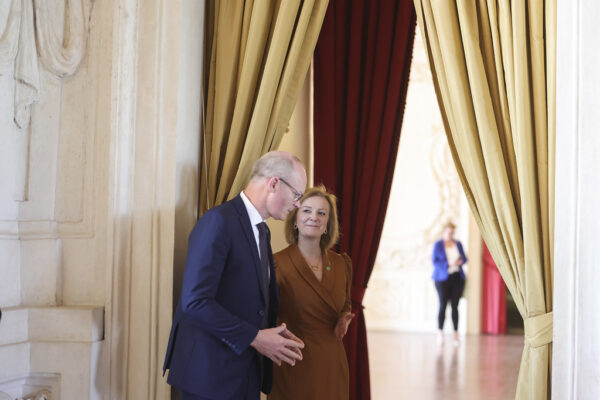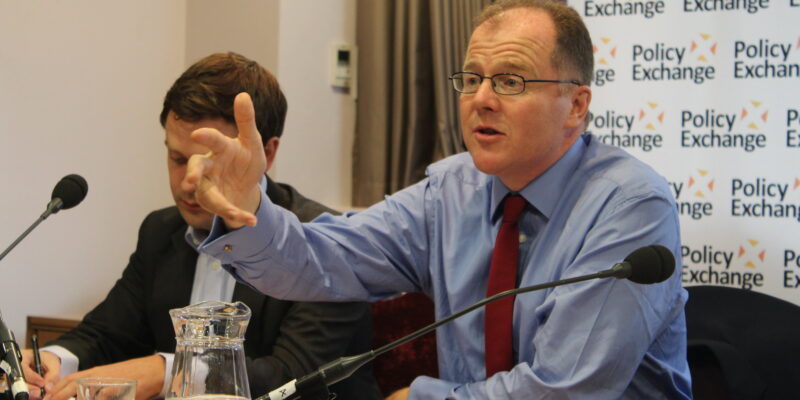Technical solutions to the Northern Ireland Protocol are possible. But the politics of it look extremely tough
The remedies proposed by the UK and EU are actually surprisingly similar. But the politics in Stormont and Westminster make striking an agreement very difficult. Luke Cooper asks, is there a way out?

The UK government is once again caught up in the messy contradictions of its pursuit of a hard break with the EU.
At the root of this is what has come to be known as the ‘trilemma’. The UK chose not only to leave the EU but the European single market, necessitating the construction of customs and regulatory borders between the UK and EU. For Northern Ireland, this means that the new border either has to be placed on the land border with the Republic (violating the Belfast/Good Friday Agreement), or in the Irish Sea (upsetting parts of the polity’s Unionist community).
As the UK government and EU were both committed to the Belfast/Good Friday Agreement the trilemma was resolved with the Northern Ireland Protocol, which created a procedure allowing the polity to remain aligned with the single market.
The problem of ‘no surrender’ Unionism
Now, Foreign Secretary Liz Truss has proposed to bring legislation before the House of Commons to unilaterally override aspects of the Northern Ireland Protocol – a move that would lead to retaliatory action by the EU. As a result, the UK would quickly find itself in an impossible-to-win trade war with its largest trading partner.
The problem for the UK government is this might not even be sufficient to placate the opposition of the Democratic Unionist Party (DUP) that are currently stopping the formation of a power-sharing administration at Stormont. While the DUP is divided over whether any compromises on the Protocol are acceptable, many in the party share the view of MP Gregory Campbell who has argued that it must be “replaced and not just tinkered [with] at the edges”. The Protocol “in and of itself is providing insurmountable barriers politically, legally and in terms of trade”, he added.
This is also the position of the more hardline party, Traditional Unionist Voice, which tripled its vote share in the Assembly elections, largely at the expense of the DUP. Yet, at the same time, these hardliners are seeing their support base decline overall, especially with the new found prominence of the cross-community party, Alliance.
Although a majority of the Northern Irish electorate support the Protocol, the constitutional power-sharing framework of the Belfast/Good Friday Agreement allows the DUP to block the formation of an administration committed to implementing it. So, ironically, a constitutional principle designed to protect Catholics and the Nationalist community from the discrimination that they historically suffered under Stormont governments, is today used by this relatively unrepresentative group of hardline Unionists, against the wishes of the majority of the polity’s electorate.
The outlines of a technical compromise exist
Despite the UK government’s bellicose language and lurch towards unilateralism on the Protocol, the outlines of a compromise framework actually appear to exist. Last October, the European Commission proposed an “express lane” for goods which entered Northern Ireland from Great Britain and were not intended for onward transit into the EU. The UK’s version of this proposal has been referred to as “the green channel”. Both proposals are based on the same principle that a special procedure could be created in order to differentiate between goods that would be sold and consumed in Northern Ireland and those intended to move from there into the EU’s single market proper.
Businesses tend to back this approach, too. They have called for a light touch regulation system for British goods but with a tough system of fines and punishments for those that are found to be abusing the system. Doug Beattie, leader of the more moderate Ulster Unionist Party (UUP), has also supported a solution on these lines:
“We all know what the landing zone is, no checks on goods from Great Britain to Northern Ireland if they are staying in Northern Ireland. That gets rid of the border down the Irish Sea.
“The EU Commission know this, the UK government know this and all five political parties who would form the executive know this also.”
The Protocol can be fixed. But can the politics?
This set of remedies would allow the UK to avoid a needless and un-winnable EU trade war at a time of armed conflict in Europe. But it won’t be easy to strike an agreement on this in Northern Irish politics.
It is far from clear whether the DUP will accept a compromise arrangement – and for as long as they don’t, they can continue to block the formation of a government at Stormont. This is, in truth, the only card they have available to play, because there are no other tangible points of leverage open to the party.
Although the Protocol will be subject to a vote in the Stormont Assembly in December 2024, the UK government has legislated to ensure that only a simple majority of legislators is required in order for the Protocol to continue to function. In other words, the usual principle of cross-community consent will not apply in this case.
Even so, because the Protocol requires Northern Ireland to remain aligned with EU regulation as it pertains to the single market in goods, it will inevitably generate tensions between Unionists and Nationalists. For the former, it breaks the cohesion of the union with Britain, for the latter it creates a welcome new convergence with the Republic.
Ultimately, the UK government need the Protocol to work, as the alternative to it is not a regulatory border on the island of Ireland (clearly unviable and politically toxic), but a UK-wide agreement for EU regulatory alignment of some kind (either Theresa May’s deal or a closer single market arrangement). As this is unacceptable to the hard Brexiters that predominate in the UK government, then the Protocol is here to stay for as long as they are in power.
May 23, 2022
Brexit Spotlight is run by Another Europe Is Possible. You can support this work by joining us today. The website is a resource to encourage debate and discussion. Published opinions do not necessarily represent those of Another Europe.





